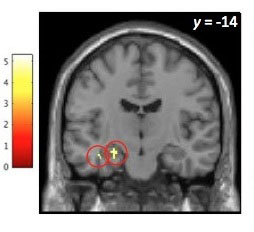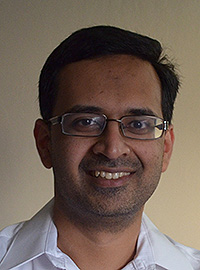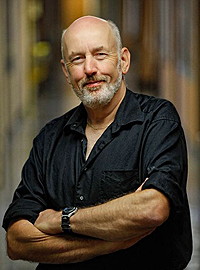Congratulations to the following 7 Division of Science faculty members were recently promoted:
 Donald B. Katz (Psychology) has been promoted to Professor of Psychology. Don came to Brandeis as an Assistant Professor with a joint appointment in the Volen Center for Complex Systems in 2002 and was promoted to Associate Professor and awarded tenure in 2008. Don’s teaching and research serve central roles in both Psychology and the Neuroscience program. His systems approach to investigating gustation blends behavioral testing of awake rodents with multi-neuronal recording and pharmacological, optogenetic, and modelling techniques. Broad themes of the neural dynamics of perceptual coding, learning, social learning, decision making, and insight run through his work on gustation. For his research, Don has won the 2007 Polak Award and the 2004 Ajinomoto Young Investigator in Gustation Award, both from the Association for Chemoreception Sciences. Don has taught “Introduction to Behavioral Neuroscience” (NPSY11b), “Advanced Topics in Behavioral Neuroscience” (NPSY197a), “Neuroscience Proseminar” (NBIO250a), “Proseminar in Brain, Body, and Behavior II” (PSYC302a), “How Do We Know What We Know?” (SYS1c). For his excellence in teaching, Don has been recognized with the 2013 Jeanette Lerman-Neubauer ’69 and Joseph Neubauer Prize for Excellence in Teaching and Mentoring, the 2006 Brandeis Student Union Teaching Award, and the 2006 Michael L. Walzer Award for Teaching and Scholarship.
Donald B. Katz (Psychology) has been promoted to Professor of Psychology. Don came to Brandeis as an Assistant Professor with a joint appointment in the Volen Center for Complex Systems in 2002 and was promoted to Associate Professor and awarded tenure in 2008. Don’s teaching and research serve central roles in both Psychology and the Neuroscience program. His systems approach to investigating gustation blends behavioral testing of awake rodents with multi-neuronal recording and pharmacological, optogenetic, and modelling techniques. Broad themes of the neural dynamics of perceptual coding, learning, social learning, decision making, and insight run through his work on gustation. For his research, Don has won the 2007 Polak Award and the 2004 Ajinomoto Young Investigator in Gustation Award, both from the Association for Chemoreception Sciences. Don has taught “Introduction to Behavioral Neuroscience” (NPSY11b), “Advanced Topics in Behavioral Neuroscience” (NPSY197a), “Neuroscience Proseminar” (NBIO250a), “Proseminar in Brain, Body, and Behavior II” (PSYC302a), “How Do We Know What We Know?” (SYS1c). For his excellence in teaching, Don has been recognized with the 2013 Jeanette Lerman-Neubauer ’69 and Joseph Neubauer Prize for Excellence in Teaching and Mentoring, the 2006 Brandeis Student Union Teaching Award, and the 2006 Michael L. Walzer Award for Teaching and Scholarship.
 Nicolas Rohleder (Psychology) has been promoted to Associate Professor in Psychology. Nic is a member of the Volen Center for Complex Systems and on the faculty of the Neuroscience and Health, Science, Society and Policy programs. His course offerings include “Health Psychology” (PSYC38a), “Stress, Physiology and Health” (NPSY141a), and” Research Methods and Laboratory in Psychology” (PSYC52a). Nic’s research investigates how acute and chronic or repeated stress experiences affect human health across individuals and age groups. His laboratory performs studies with human participants using methods than span behavioral to molecular to understand how the hypothalamus-pituitary-adrenal (HPA) axis and sympathetic nervous system (SNS) regulate peripheral immunological responses and how these processes mediate cardiovascular disease, type 2 diabetes, and cancer, and aging. His research and teaching fill unique niches for all his Brandeis departmental and program affiliations. Nic’s research excellence has been recognized outside Brandeis with awards including the 2013 Herbert Weiner Early Career Award of the American Psychosomatic Society and the 2011 Curt P. Richter Award of the International Society of Psychoneuroendocrinology.
Nicolas Rohleder (Psychology) has been promoted to Associate Professor in Psychology. Nic is a member of the Volen Center for Complex Systems and on the faculty of the Neuroscience and Health, Science, Society and Policy programs. His course offerings include “Health Psychology” (PSYC38a), “Stress, Physiology and Health” (NPSY141a), and” Research Methods and Laboratory in Psychology” (PSYC52a). Nic’s research investigates how acute and chronic or repeated stress experiences affect human health across individuals and age groups. His laboratory performs studies with human participants using methods than span behavioral to molecular to understand how the hypothalamus-pituitary-adrenal (HPA) axis and sympathetic nervous system (SNS) regulate peripheral immunological responses and how these processes mediate cardiovascular disease, type 2 diabetes, and cancer, and aging. His research and teaching fill unique niches for all his Brandeis departmental and program affiliations. Nic’s research excellence has been recognized outside Brandeis with awards including the 2013 Herbert Weiner Early Career Award of the American Psychosomatic Society and the 2011 Curt P. Richter Award of the International Society of Psychoneuroendocrinology.
 Matthew Headrick (Physics) has been promoted to Associate Professor of Physics. He works at the intersection of three areas of modern theoretical physics: quantum field theory, general relativity, and quantum information theory. In particular, he uses information-theoretic techniques to study the structure of entanglement — a fundamental and ubiquitous property of quantum systems — in various kinds of field theories. Much of his work is devoted to the study of so-called “holographic” field theories, which are equivalent, in a subtle and still mysterious way, to theories of gravity in higher-dimensional spacetimes. Holographic theories have revealed a deep connection between entanglement and spacetime geometry, and Headrick has made significant contributions to the elucidation of this connection. Understanding the role of entanglement in holographic theories, and in quantum gravity more generally, may eventually lead to an understanding of the microscopic origin of space and time themselves.
Matthew Headrick (Physics) has been promoted to Associate Professor of Physics. He works at the intersection of three areas of modern theoretical physics: quantum field theory, general relativity, and quantum information theory. In particular, he uses information-theoretic techniques to study the structure of entanglement — a fundamental and ubiquitous property of quantum systems — in various kinds of field theories. Much of his work is devoted to the study of so-called “holographic” field theories, which are equivalent, in a subtle and still mysterious way, to theories of gravity in higher-dimensional spacetimes. Holographic theories have revealed a deep connection between entanglement and spacetime geometry, and Headrick has made significant contributions to the elucidation of this connection. Understanding the role of entanglement in holographic theories, and in quantum gravity more generally, may eventually lead to an understanding of the microscopic origin of space and time themselves.
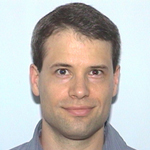
Isaac Krauss (Chemistry) has been promoted to Associate Professor of Chemistry. He is an organic chemist and chemical biologist whose research is at the interface of carbohydrate chemistry and biology. His lab has devised tools for directed evolution of modified DNA and peptides as an approach to designing carbohydrate vaccines against HIV. Krauss is also a very popular teacher and the recipient of the 2015 Walzer prize in teaching for tenure-track faculty.
Xiaodong Liu (Psychology) has been promoted to Associate Professor in Psychology. Xiaodong provides statistical training for graduate students in Psychology, Heller School, IBS, Neuroscience, Biology, and Computer Science, he serves as a statistical consultant for  Psychology faculty and student projects, and he performs research on general & generalized linear modeling and longitudinal data analysis, which he applies to child development, including psychological adjustment and school performance. He teaches “Advanced Psychological Statistics I and II” (PSYC210a,b), “SAS Applications” (PSYC140a), “Multivariate Statistics I: Applied Structural Equation Modeling” (PSYC215a), and “Multivariate Statistics II: Applied Hierarchical Linear Models” (PSYC216a). He is developing a new course on “The R Statistical Package and Applied Bayes Analysis”, and he recently won a Provost’s Innovations in Teaching Grant for “Incorporating Project-based modules in Learning and Teaching of Applied Statistics”.
Psychology faculty and student projects, and he performs research on general & generalized linear modeling and longitudinal data analysis, which he applies to child development, including psychological adjustment and school performance. He teaches “Advanced Psychological Statistics I and II” (PSYC210a,b), “SAS Applications” (PSYC140a), “Multivariate Statistics I: Applied Structural Equation Modeling” (PSYC215a), and “Multivariate Statistics II: Applied Hierarchical Linear Models” (PSYC216a). He is developing a new course on “The R Statistical Package and Applied Bayes Analysis”, and he recently won a Provost’s Innovations in Teaching Grant for “Incorporating Project-based modules in Learning and Teaching of Applied Statistics”.
 Gabriella Sciolla (Physics) has been promoted to Professor of Physics. She is a particle physicist working on the ATLAS experiment at CERN in Geneva, Switzerland. Sciolla and her group study the properties of the newly discovered Higgs Boson and search for Dark Matter particles produced in high-energy proton-proton collisions at the Large Hadron Collider. Sciolla is also responsible for the reconstruction and calibration of the muons produced in ATLAS. These particles are key to both Higgs studies and searches for New Physics.
Gabriella Sciolla (Physics) has been promoted to Professor of Physics. She is a particle physicist working on the ATLAS experiment at CERN in Geneva, Switzerland. Sciolla and her group study the properties of the newly discovered Higgs Boson and search for Dark Matter particles produced in high-energy proton-proton collisions at the Large Hadron Collider. Sciolla is also responsible for the reconstruction and calibration of the muons produced in ATLAS. These particles are key to both Higgs studies and searches for New Physics.
Nianwen Xue (Computer Science) has been promoted to Associate Professor of Computer Science. The Computer Science Department is pleased to ann ounce the promotion of Nianwen (Bert) Xue to Associate Professor with tenure. Since joining Computer Science he has made significant contributions to the research and teaching efforts in Computational Linguistics, including growing a masters program from zero up to 18 students this year. His publications are very well regarded, and focus on the development and use of large corpora for natural language processing, especially in Chinese. He has built a sizable lab with diverse funding that students from around the world are vying to enter.
ounce the promotion of Nianwen (Bert) Xue to Associate Professor with tenure. Since joining Computer Science he has made significant contributions to the research and teaching efforts in Computational Linguistics, including growing a masters program from zero up to 18 students this year. His publications are very well regarded, and focus on the development and use of large corpora for natural language processing, especially in Chinese. He has built a sizable lab with diverse funding that students from around the world are vying to enter.
Thank you to the following department chairs for their contributions to this post:
- Paul DiZio, Psychology
- Jane Kondev, Physics
- Jordan Pollack, Computer Science
- Barry Snider, Chemistry
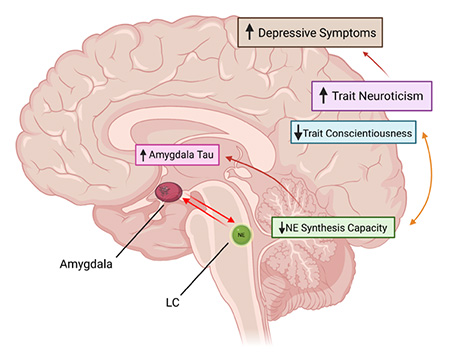 PhD candidate Jourdan Parent examined relationships among personality traits, locus coeruleus catecholamine neurotransmitter function, and tau burden using positron emission tomography imaging in cognitively normal older adults. She found that lower locus coeruleus catecholamine function was associated with higher neuroticism, more depressive symptoms, and higher tau burden in the amygdala, a brain region implicated in stress and emotional responses. Exploratory analyses revealed similar associations with low trait conscientiousness, a personality trait that is also considered a risk factor for dementia. Path analyses revealed that high neuroticism and low conscientiousness were linked to greater amygdala tau burden through their mutual association with low locus coeruleus catecholamine function. Together, these findings reveal locus coeruleus catecholamine function is a promising marker of affective health and pathology burden in aging, and that this may be a candidate neurobiological mechanism for the effect of personality on increased vulnerability to dementia.
PhD candidate Jourdan Parent examined relationships among personality traits, locus coeruleus catecholamine neurotransmitter function, and tau burden using positron emission tomography imaging in cognitively normal older adults. She found that lower locus coeruleus catecholamine function was associated with higher neuroticism, more depressive symptoms, and higher tau burden in the amygdala, a brain region implicated in stress and emotional responses. Exploratory analyses revealed similar associations with low trait conscientiousness, a personality trait that is also considered a risk factor for dementia. Path analyses revealed that high neuroticism and low conscientiousness were linked to greater amygdala tau burden through their mutual association with low locus coeruleus catecholamine function. Together, these findings reveal locus coeruleus catecholamine function is a promising marker of affective health and pathology burden in aging, and that this may be a candidate neurobiological mechanism for the effect of personality on increased vulnerability to dementia.

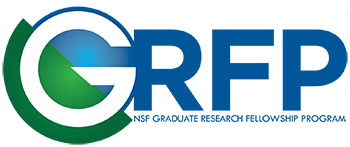 Five Brandeisians (past and present) have received
Five Brandeisians (past and present) have received 